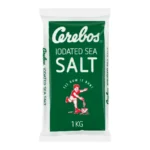Hypertension, commonly known as high blood pressure, is a widespread health issue affecting millions of people worldwide. If left uncontrolled, it can lead to serious complications such as heart disease, stroke, and kidney problems. While medications are often prescribed to manage hypertension, lifestyle modifications play a crucial role in controlling blood pressure levels. Among the various dietary approaches, the DASH diet has gained recognition for its effectiveness in managing hypertension.
DASH, which stands for Dietary Approaches to Stop Hypertension, is an eating plan specifically designed to lower blood pressure. It was developed through extensive research supported by the National Heart, Lung, and Blood Institute (NHLBI). The DASH diet emphasises the consumption of fruits, vegetables, whole grains, lean proteins, and low-fat dairy products while limiting sodium, saturated fats, and added sugars.
One of the key aspects of the DASH diet is its focus on increasing the intake of fruits and vegetables. These food groups are naturally low in sodium and high in potassium, magnesium, and fibre, all of which contribute to blood pressure regulation. Potassium helps the body balance sodium levels and reduces the constriction of blood vessels. Additionally, the high fibre content of fruits and vegetables has been linked to improved heart health.
Whole grains, another essential component of the DASH diet, provide important nutrients and fibre. They also help regulate blood pressure by enhancing cardiovascular health. Lean proteins, such as poultry, fish, and legumes, are encouraged as they are low in saturated fat, which can negatively impact blood pressure. Low-fat dairy products are also recommended for their calcium and protein content, which support healthy blood pressure levels.
In contrast, the DASH diet discourages the consumption of sodium, saturated fats, and added sugars. Excessive sodium intake has been closely associated with increased blood pressure. By reducing sodium, the DASH diet helps prevent fluid retention and eases the strain on blood vessels. Saturated fats, commonly found in fatty meats, full-fat dairy products, and certain oils, contribute to high cholesterol levels, increasing the risk of hypertension. Added sugars, often present in sugary beverages and processed foods, have been linked to weight gain and elevated blood pressure.
The effectiveness of the DASH diet in managing hypertension has been well-documented. Numerous studies have shown that adhering to the DASH eating plan can lead to significant reductions in blood pressure. For example, a study published in the New England Journal of Medicine found that participants following the DASH diet experienced a notable decrease in both systolic and diastolic blood pressure compared to those on a typical Western diet.
Moreover, the DASH diet has demonstrated its efficacy not only in individuals with hypertension but also in those with normal blood pressure. A study published in the Archives of Internal Medicine revealed that individuals with normal blood pressure who followed the DASH eating plan experienced a reduction in blood pressure as well, highlighting its preventive benefits.
It is important to note that while the DASH diet has proven effective in managing hypertension, it should be complemented by other healthy lifestyle choices. Regular physical activity, weight management, limited alcohol consumption, and avoidance of smoking are all integral to maintaining optimal blood pressure levels.
The DASH diet offers a holistic and scientifically-backed approach to managing hypertension. By promoting the consumption of nutrient-dense foods and reducing sodium, saturated fats, and added sugars, the DASH eating plan effectively helps regulate blood pressure. As with any dietary modification, it is advisable to consult with a healthcare professional or a registered dietitian to personalise the diet to individual needs. Embracing the DASH diet, combined with a healthy lifestyle, can significantly contribute to the prevention and management of hypertension, ultimately promoting cardiovascular well-being.








